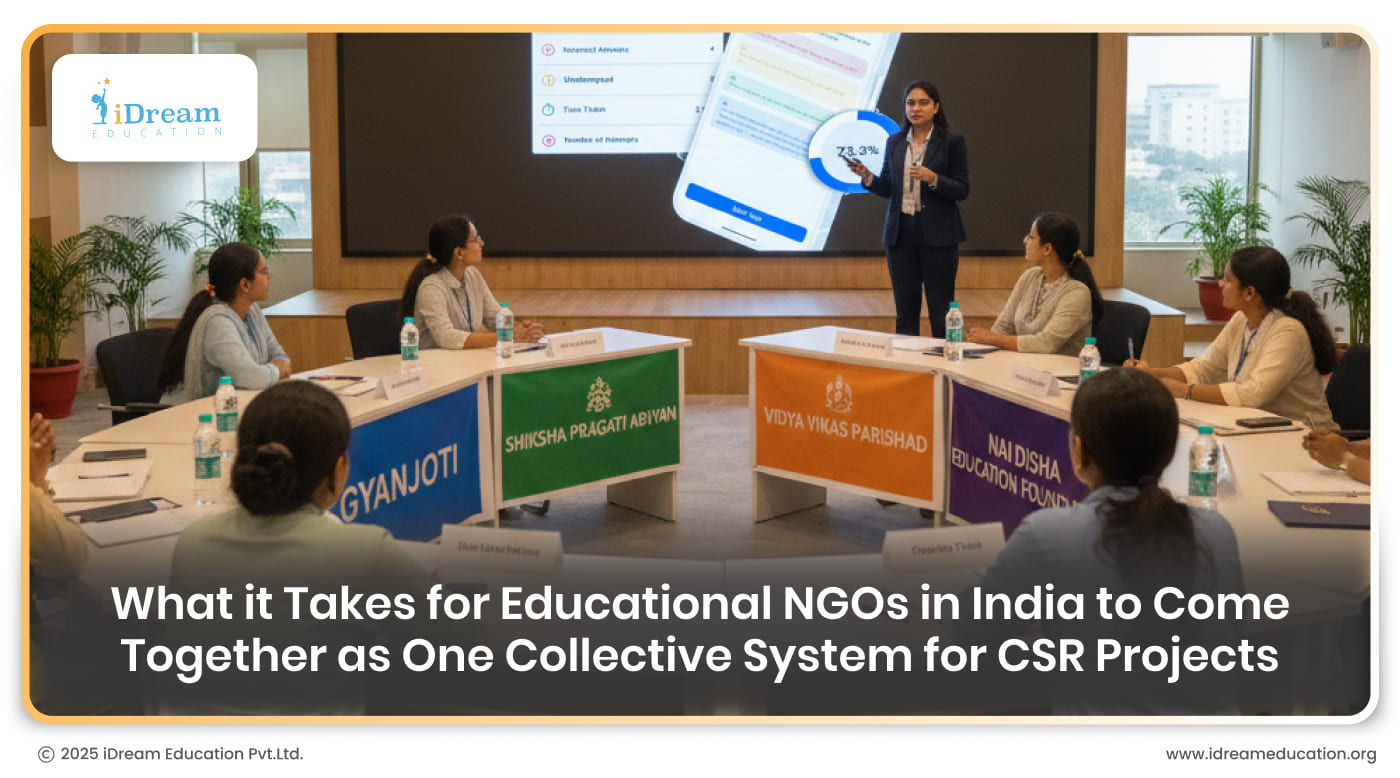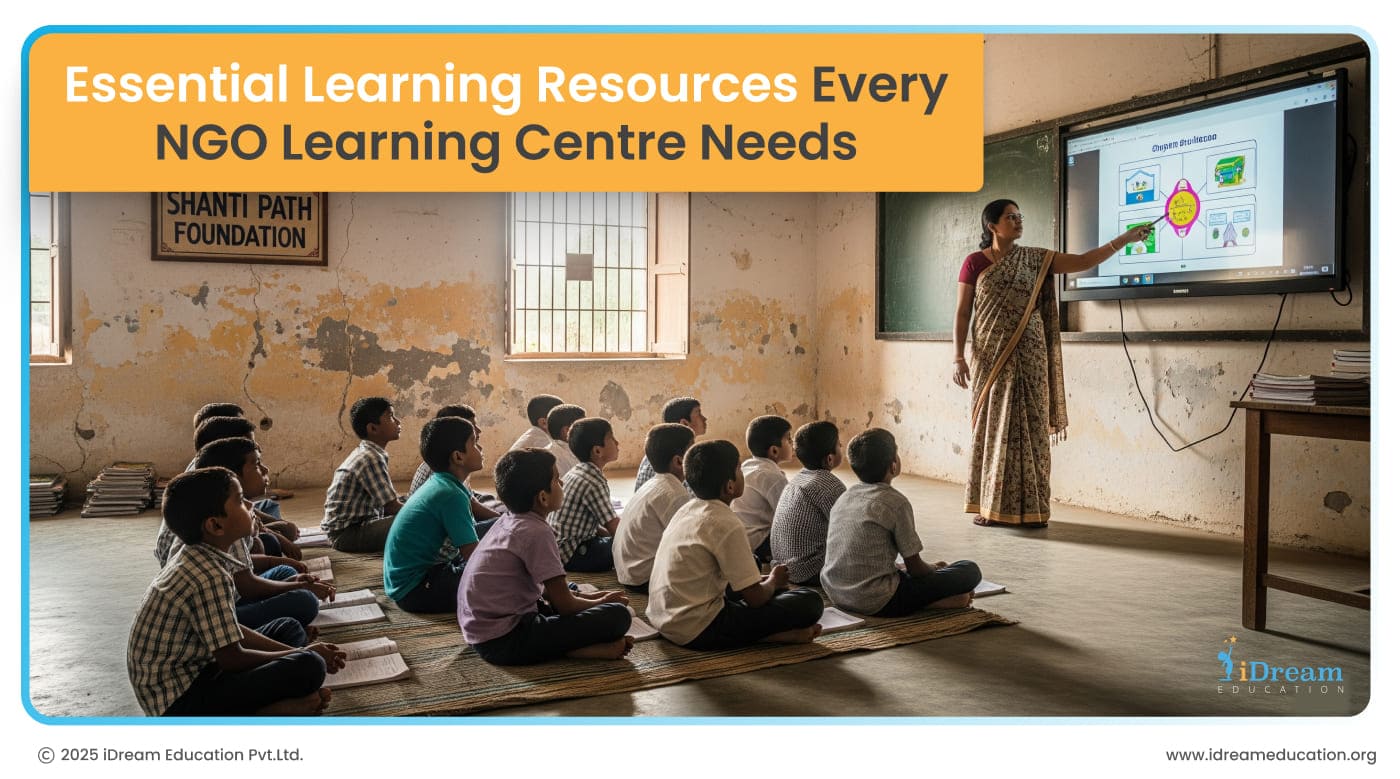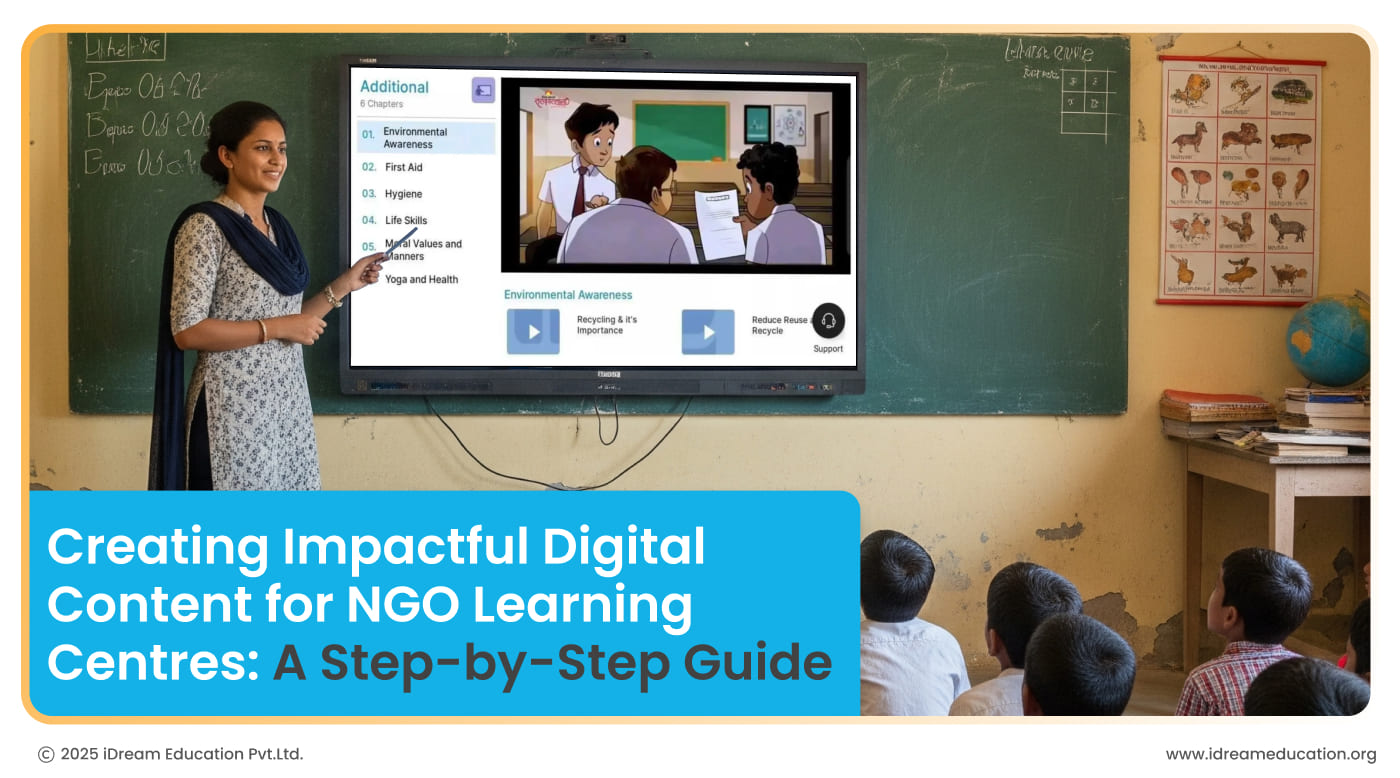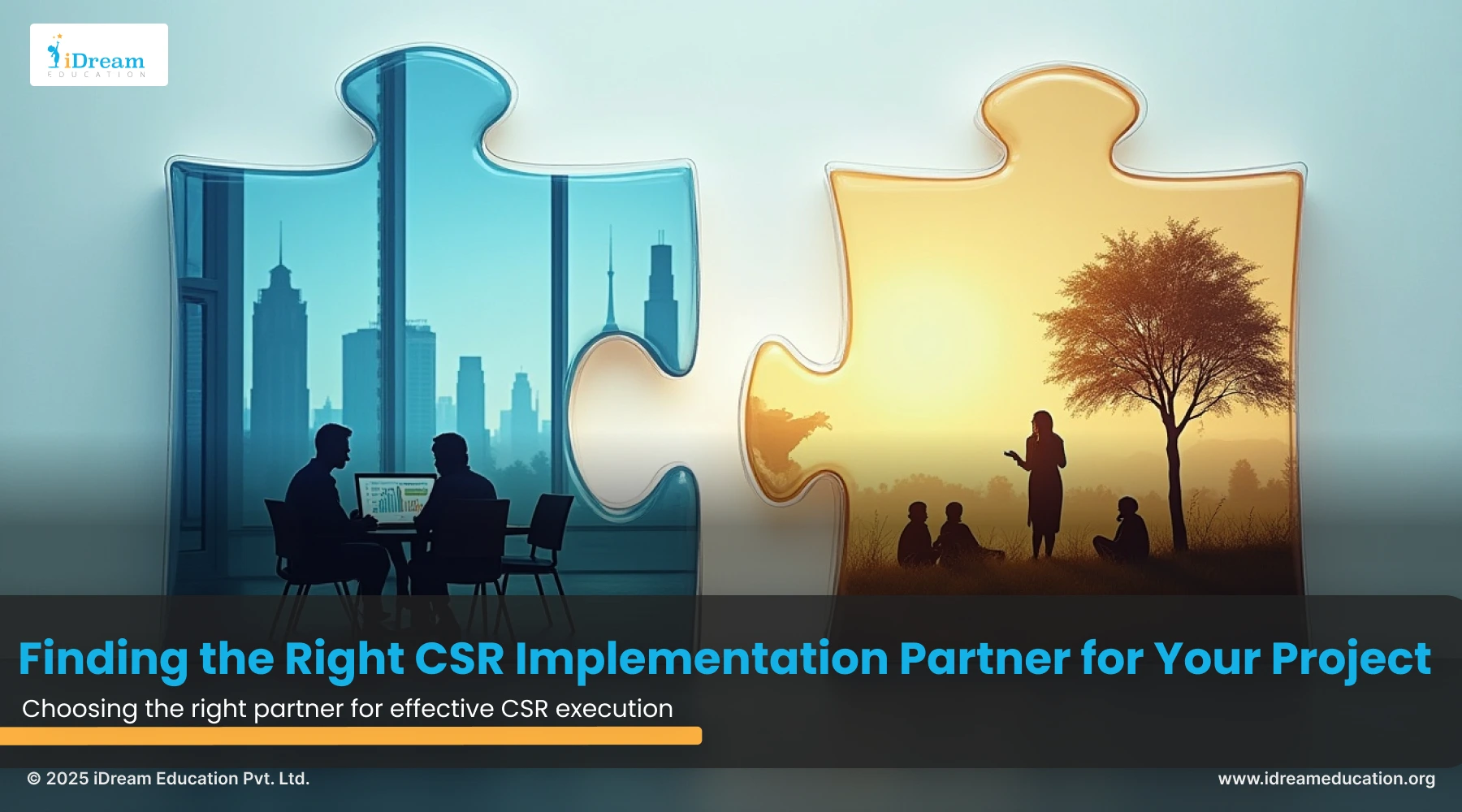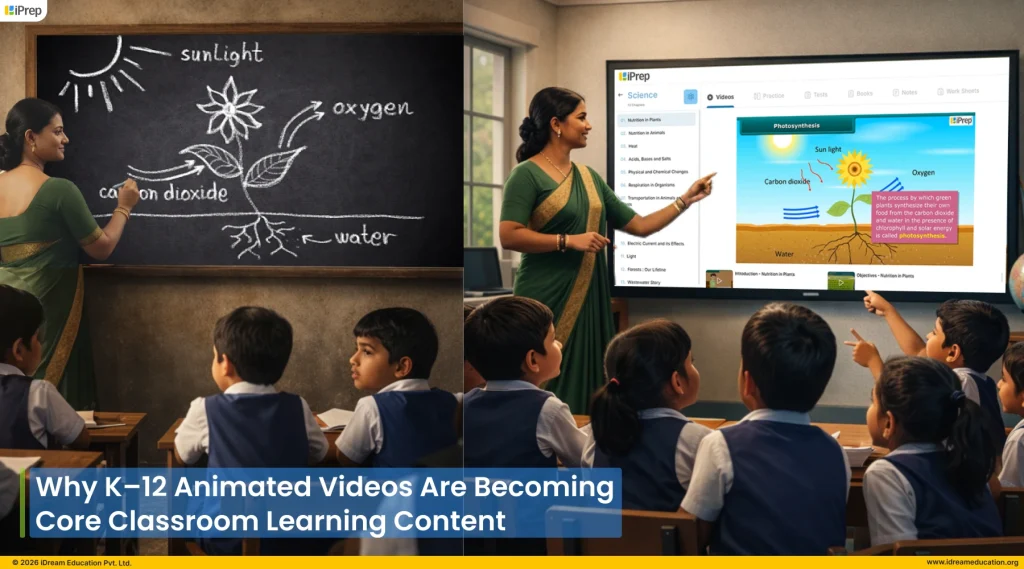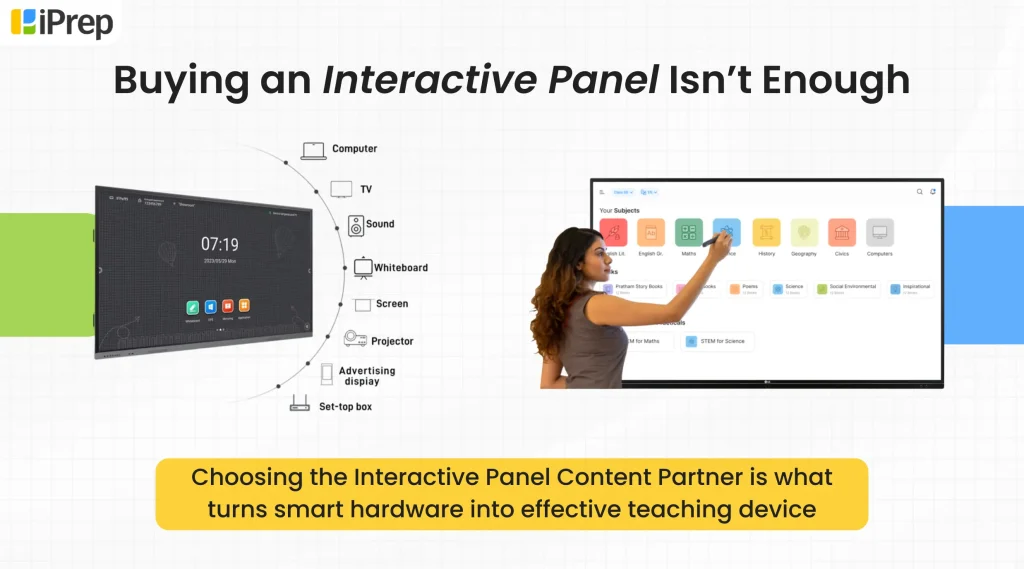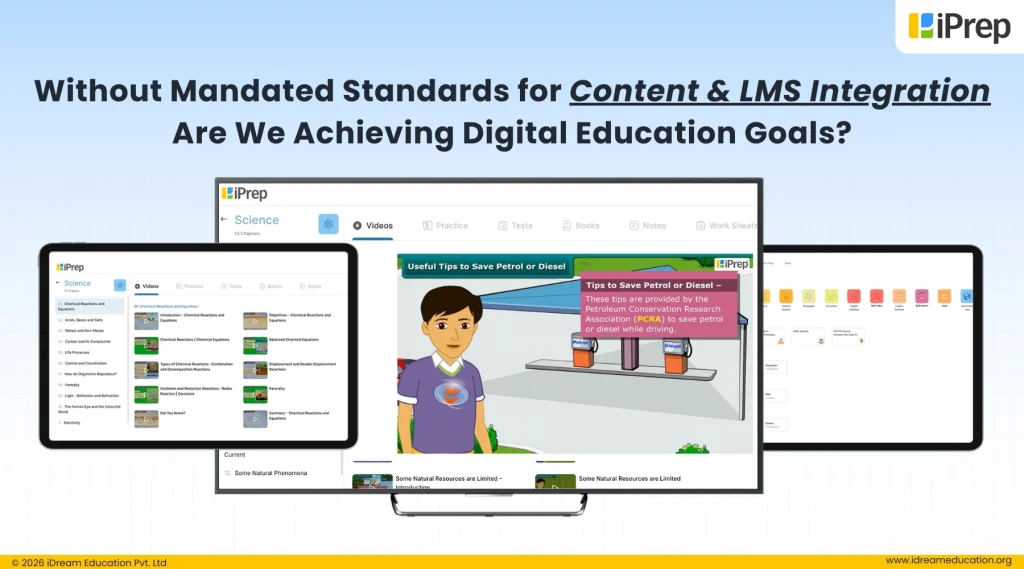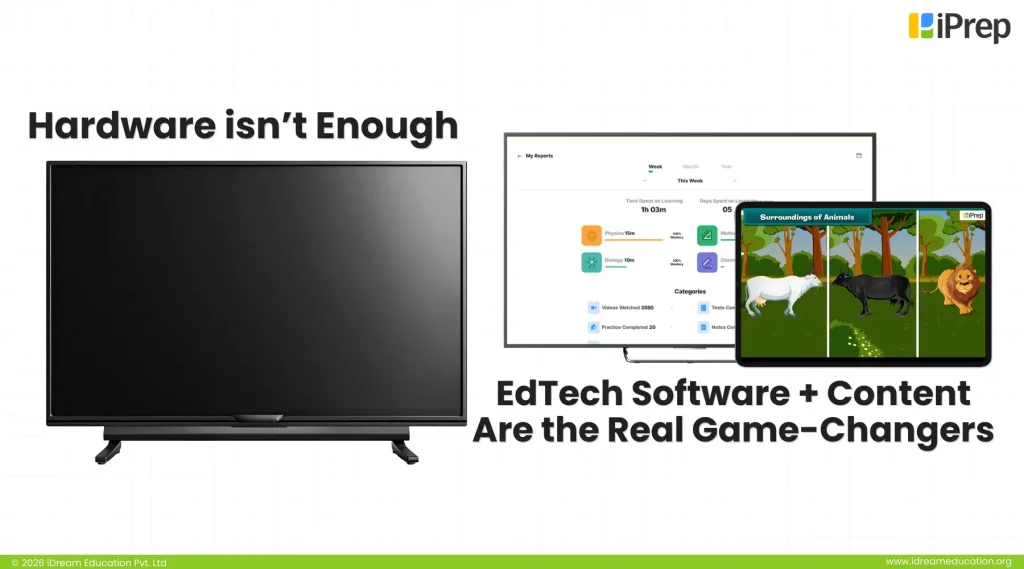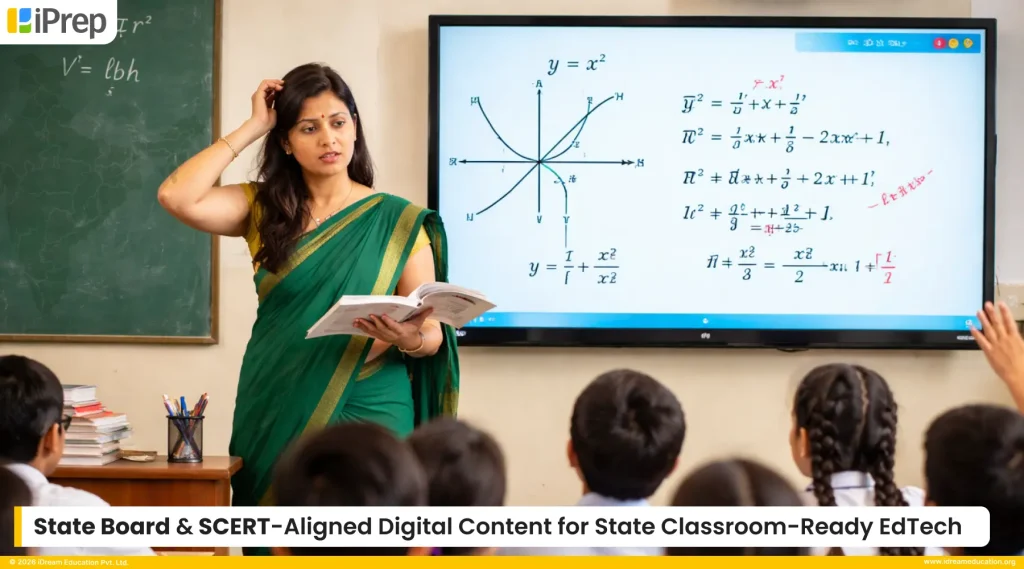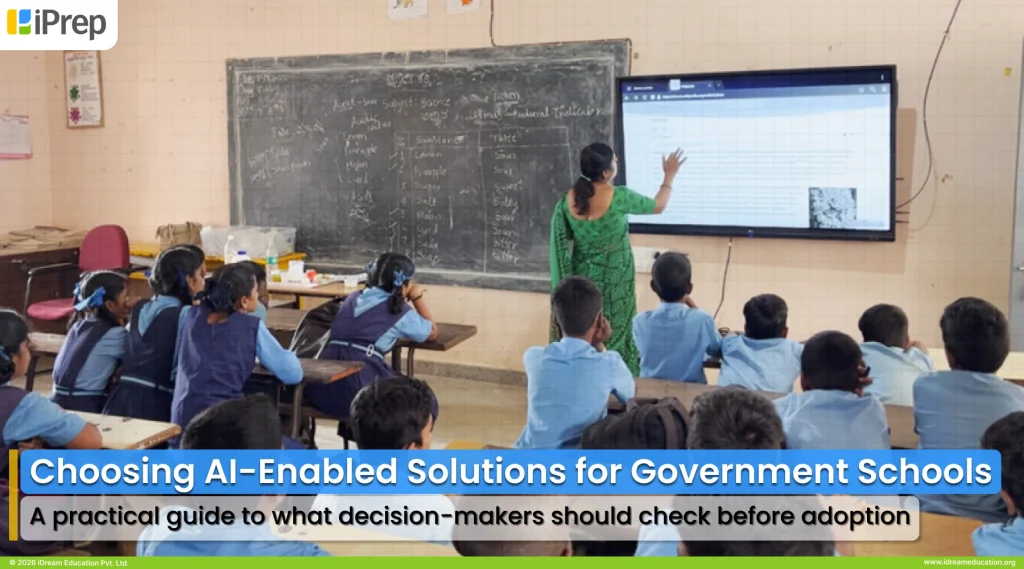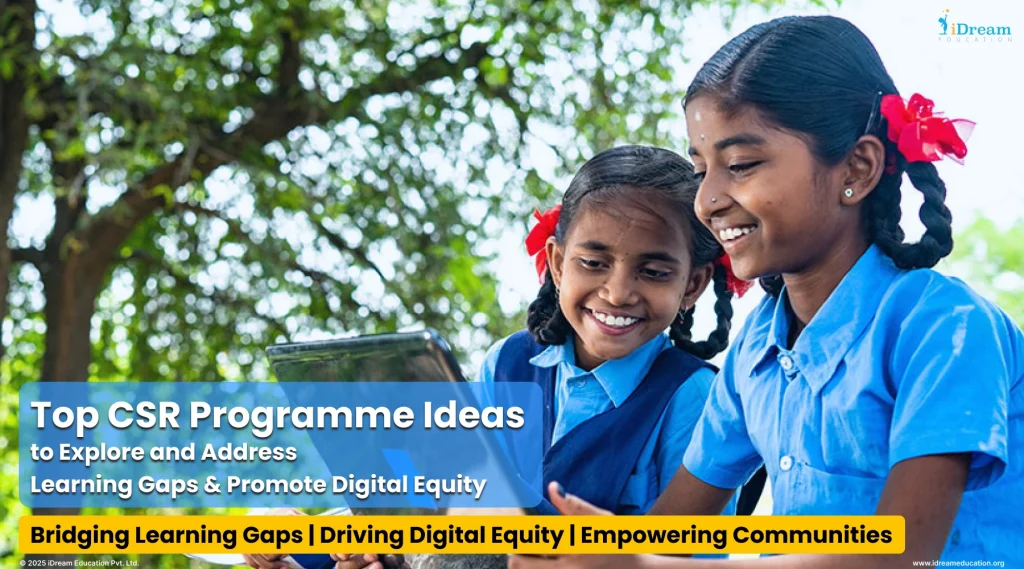
Corporate Social Responsibility (CSR) programmes have long been shaped by a blend of company focus areas such as health, education, and skill development. Over the years, CSR in education has evolved from building schools and donating materials to ensuring that students actually learn better and progress academically.
Earlier, the goal was access, ensuring every child had a classroom and learning resources. Then came engagement, with programmes focused on improving attendance, teacher training, and classroom participation. Today, the focus has clearly shifted to measurable learning outcomes, using digital tools, localised content, and structured programme design to ensure every investment drives visible progress in students’ learning levels.
Education continues to be one of India’s largest CSR focus areas, attracting nearly ₹6,482 crore of funding in FY 2021–22, and how success is measured has changed dramatically. CSR boards no longer evaluate projects based on the infrastructure delivered.
What truly matters now is evidence of learning outcomes, student progress, and teacher empowerment, backed by data.
This shift has brought in a new level of accountability and design thinking. Projects are now expected to show real-time progress, use evidence-based interventions, and demonstrate impact that aligns with both national education goals and corporate sustainability objectives.
That’s where innovation in CSR programme ideas becomes critical, creating initiatives that combine strong on-ground implementation with adaptive learning, digital equity, and measurable outcomes that last.
What Makes the CSR Programme Ideas in Education Truly Transformative?
The most impactful CSR programmes go beyond infrastructure and focus on connecting with the real needs of students, teachers, and classrooms. This starts with understanding everyday challenges, from limited time to the lack of curriculum-aligned digital content that teachers can actually use.
Many schools already have digital setups, but without relevant and easy-to-access resources, these remain underutilised. Transformative programmes bridge this gap by combining the right technology with clear curriculum mapping, teacher support, and data insights that track real progress.
When learning outcomes are low, regular assessments help identify gaps early, allowing targeted interventions like bridge courses or adaptive learning paths. By blending human understanding with data-led action, CSR in education moves from access to measurable, lasting impact.
Now that we understand these challenges, the question arises:
Top Digital Learning CSR Programme Ideas Aligned with NEP and ICT Priorities
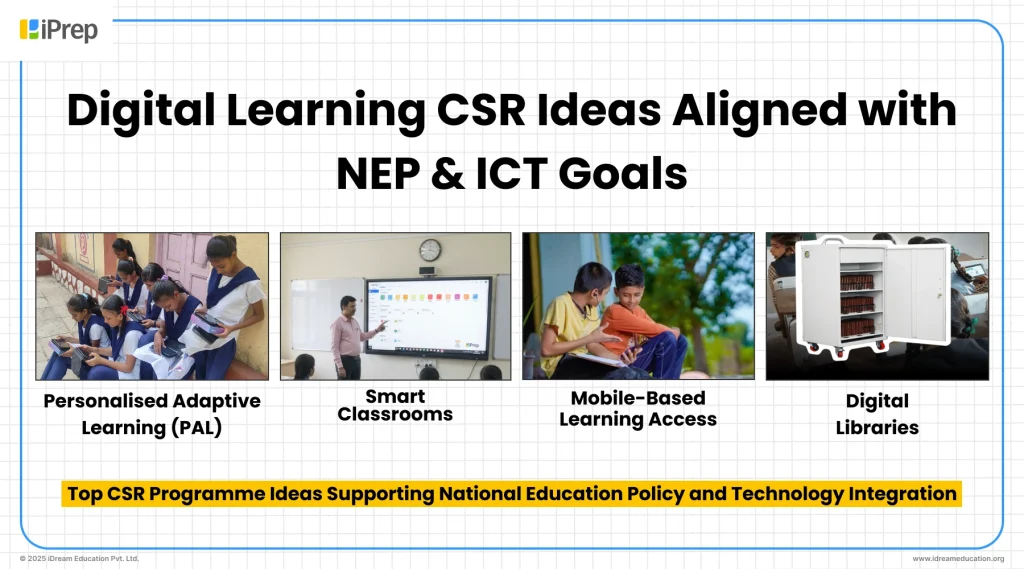
Most CSR leaders working in education already recognise how the conversation has evolved, from access to engagement, and now, to measurable learning outcomes.
In line with NEP 2020, PM SHRI Yojana, and the ICT in Education policy, the question is no longer whether to integrate digital learning, but how to do it meaningfully, in ways that improve learning levels, build teacher confidence, and stay true to local contexts.
Here are four directions that continue to prove both relevant and scalable across CSR projects in education:
Personalised Adaptive Learning (PAL): Closing Foundational Gaps with Precision
Across CSR and NGO-led classrooms, foundational learning gaps remain one of the most persistent challenges. Personalised Adaptive Learning (PAL) offers a way to tackle these gaps at scale, diagnosing where each student stands and offering guided, curriculum-mapped practice to help them catch up.
- Research by Professor Michael Kremer (2022) shows that structured digital and teacher-guided learning approaches can nearly double student learning gains in foundational subjects. This reinforces that, when used effectively, adaptive digital tools can create measurable learning impact.
- Depending on context, CSR teams have the flexibility to enable PAL as in-school shared labs, take-home learning tablets, or hybrid access models, all designed to meet learners where they are.
Why it works: PAL offers a scalable, measurable way to improve student outcomes, aligning directly with NEP 2020’s emphasis on personalised, competency-based learning and foundational literacy and numeracy (FLN) goals.
Smart Classrooms – Supporting Teacher, Strengthening Classrooms
Many CSR partners have already experimented with Smart Classrooms, and the value is now clear.
- When multimedia, curriculum-linked content is integrated into everyday teaching, teachers spend less time searching for materials and more time engaging students meaningfully.
- The key lies not in the hardware itself, but in training, ongoing support, and data-led feedback loops that help teachers feel confident using the tools.
Why it works: Smart classrooms directly align with PM SHRI and Samagra Shiksha’s vision of technology-integrated education and teacher enablement, ensuring that CSR efforts contribute to long-term digital readiness.
Digital Libraries: Enabling Reading Resources and Curiosity at Scale
Several CSR projects are now exploring digital libraries as a means to rekindle reading habits and broaden exposure to quality content.
- When designed well, these digital libraries do more than provide access, they inspire independent exploration through multilingual storybooks, biographies, and creative reading materials aligned to age and grade.
- The flexibility is the key for digital libraries that take the shape of shared reading corners, community kiosks, or tablet-based collections that travel between schools.
Why it works: By promoting digital literacy and independent learning, digital libraries complement the NEP 2020 goal of multilingual, joyful learning and the creation of independent, lifelong learners.
Mobile-Based Learning Access: Extending the Reach Beyond Schools
As mobile penetration deepens, CSR programmes are discovering new opportunities to enable continuous learning through mobile-based adaptive platforms.
- This model is particularly effective for students who already have access to shared smartphones or affordable connectivity.
- It’s a low-cost, high-impact approach that ensures continuity of learning outside the classroom, especially in semi-urban and rural communities, without requiring heavy hardware investment.
Why it works: Such models echo the Digital India and ICT policy focus on leveraging mobile technology for last-mile learning at much lower costs.
More than interventions, these ideas outline a framework for inclusive, data-led education. Turning them into impact depends on partnerships grounded in purpose and measurable outcomes.
With 9 years of experience working alongside CSR, NGOs and foundations to enable education opportunities and enhance learning outcomes across 23 states in India, we have grown and learned with every partnership. Each new programme allows us to design custom solutions that address ground-level challenges in schools, from bridging learning gaps to enabling seamless adoption of digital technology. Details of some of our CSR project partnerships can be found here.
If your organisation is looking to turn these CSR ideas into action, driving meaningful digitalisation in schools, improving learning outcomes, setting up digital infrastructure, and ensuring hassle-free adoption, we would be happy to collaborate.
Reach out to us at: +917678265039 or email us at share@idreameducation.org. You can also share your details here.
Together, we can bring true transformation in schools by creating CSR programme ideas that are practical, impactful, and tailored to the unique needs of every community, teacher and student.


